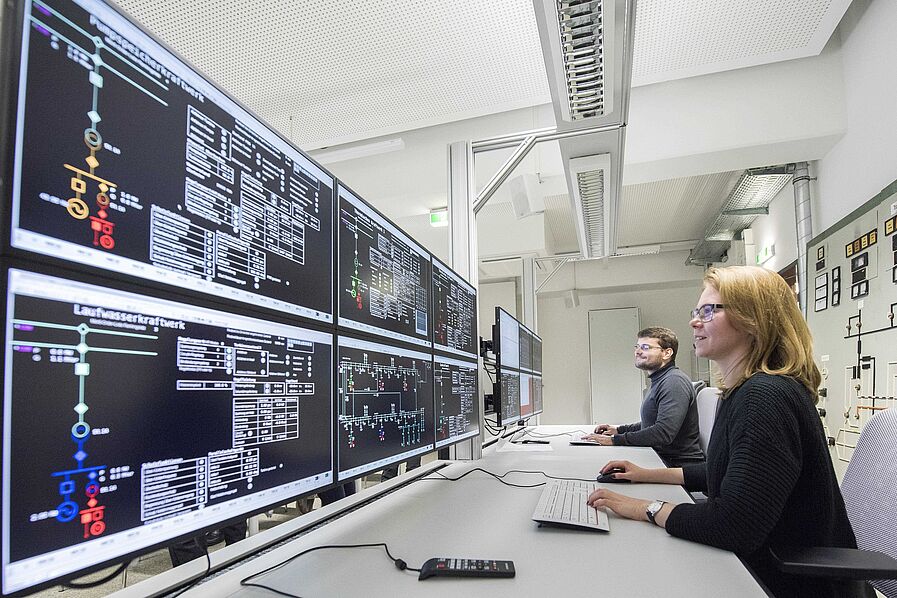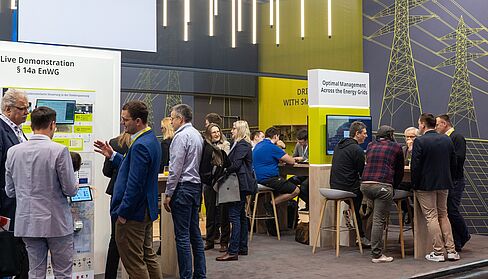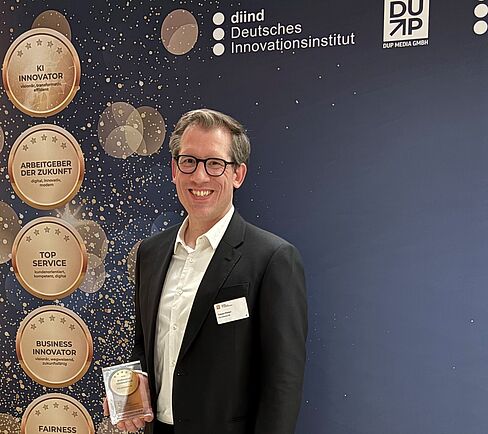Berlin, July 7, 2025 – Brandenburg University of Technology Cottbus-Senftenberg (BTU) is fundamentally modernizing its network control technology and, together with PSI Software SE, is developing a SmartGrid Real Laboratory as well as a new Power System training Simulator based on the PSIprins control system.

Based on the latest generation PSIprins 9, a new Power System training Simulator with improved process simulation will be delivered by DIgSILENT PowerFactory.
The BTU is one of Germany's leading technical universities in the field of transmission grid operation and research of sector-coupled, island-capable micro grids, and plays a central role in innovation, research, and scientific education in the Lausitz region. With the SmartGrid Real Laboratory, the BTU is implementing a pioneering project for the digitalization and further development of its Campus Grid.
The aim is to further develop the existing campus micro grid to a fully-fledged SmartGrid Real Laboratory and to upgrade the grid control technology both functionally and technologically for the sectoral coupling of electricity, heating, cooling, as well as gas. The structural change project EIZ – Energy Innovation Center at the BTU Cottbus, led by the Faculty for High Voltage Engineering and Electrical Systems, focuses in particular on measures for controlling decentralized energy structures for sector-wide operations.
At the same time, a modern training and research environment is being created. The third-generation grid training simulator is again based on the PSIprins platform with PowerFactory as its calculation core and enables real-life training scenarios for university education and research in digitalized energy flow control.
The training simulator uses powerful real-time calculations for power flow, grid security, and short-circuit current calculation. Extensive modeling is used for this purpose, including realistic power plant models, feed-in models for wind energy and photovoltaic systems, transformer models, as well as flexible load models. A special feature here is the realistic, control-related representation of generators, such as thermal power plants down to the combustion stage, and the feed-in of electricity from renewable energies derived from the wind speed or global radiation at the plant location.
The project, which was launched in March 2025 as part of the EIZ Energy Innovation Center structural change project with funding from the Federal Ministry of Education and Research (BMBF) and the State of Brandenburg, is a central component of the 10-year research period.
The PSI Group develops software products for optimizing the flow of energy and materials for utilities and industry. As an independent software producer with more than 2,300 employees, PSI has been a technology leader since 1969 for process control systems that ensure sustainable energy supply, production and logistics by combining AI methods with industrially proven optimization methods. The innovative industry products can be operated on-premises or in the cloud.


